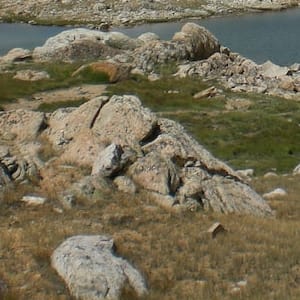heat wave: Idiom Meaning and Origin
What does ‘heat wave’ mean?
A "heat wave" refers to an extended period of abnormally hot weather, typically with high temperatures lasting for days or weeks. It is often accompanied by high humidity levels, making it uncomfortable and potentially dangerous for people and animals.

Idiom Explorer
The idiom "stormy weather" refers to a period of difficult and turbulent times or circumstances, often related to emotional or challenging situations.
The idiom "in the hot seat" means to be in a difficult or uncomfortable position, often under scrutiny or facing intense questioning.
The idiom "how's the weather" is used figuratively to ask about someone's current mood or emotional state.
It implies a casual inquiry into how someone is feeling or what their general disposition is like at the moment.
A house cooling party is a gathering held by someone who is moving out of their home, typically to say goodbye to friends and neighbors. It is the opposite of a housewarming party.
The idiom "hot water" refers to being in a difficult or troublesome situation, often due to one's own actions or decisions.
The idiom "hot stuff" is used to describe someone or something that is outstanding, remarkable, or highly skilled.
The idiom "hot shit" refers to someone or something that is highly impressive, successful or influential. It is used to convey a sense of superiority or remarkable qualities.
The idiom *hot hand* refers to a streak or period of success or good fortune. It is often used in sports to describe a player who is performing exceptionally well for a certain period of time.
The idiom *hot and heavy* means being intense and passionate, usually in a romantic or sexual manner.
The idiom "hot and cold" means to be inconsistent or indecisive in one's actions or feelings.
Deciphering the Blaze
A heat wave is a period of excessively hot weather that lasts for several days or even weeks. The idiom "heat wave" originated from the literal meaning of "heat" as high temperature and "wave" indicating a prolonged occurrence. Although the exact origin of the idiom is unknown, it has been widely used in English language and literature since at least the 19th century.
The primary meaning of a heat wave implies a sense of intensity and duration. It refers to abnormally hot weather accompanied by high levels of humidity. These extreme weather conditions can be uncomfortable and potentially dangerous, posing health risks, especially for vulnerable populations such as the elderly, young children, and those with underlying medical conditions.
During a heat wave, it feels as though the summer is at its peak, with scorching temperatures and oppressive humidity. The heat is relentless and unyielding, making it difficult to find relief. People often use the idiom "high summer" to describe this intense period of heat, as if the summer season has reached its zenith.
Heat waves can lead to various health issues, including heat exhaustion and heat stroke, as well as dehydration. The idiom "cold snap" is often used as a juxtaposition to describe the sudden and extreme change in weather conditions after a heat wave. It signifies a significant drop in temperatures, bringing relief from the scorching heat.
Additionally, heat waves can increase the risk of wildfires and worsen air pollution. The idiom "boiling hot" captures the extreme heat and discomfort experienced during a heat wave. It conveys the sense that the weather is so hot that it feels like everything is boiling and becoming unbearable.
Furthermore, heat waves can have significant socioeconomic impacts. They put a strain on energy resources due to increased demand for cooling, decrease agricultural productivity, and disrupt transportation and infrastructure. The idiom "stormy weather" can be used metaphorically to describe the chaotic and disruptive effects that a heat wave can have on society and the environment.
The idiom "heat wave" is commonly used in various contexts, such as weather reports, discussions about climate change, and everyday conversations. It conveys a powerful and easily recognizable image of extreme heat and discomfort. People use this idiom to describe the intensity and duration of hot weather, which is often beyond what is considered normal.
Furthermore, the idiom "heat wave" is not limited to describing natural occurrences. It can also be used metaphorically to describe a surge or increase in other domains. For example, it can be applied to a sudden influx of popularity or attention to a particular topic, such as a "heat wave of interest" or a "heat wave of social media activity." This metaphorical usage capitalizes on the idiom's connotation of intensity and widespread impact, effectively conveying the notion of a noticeable and transformative change in a short period of time.
Understanding the meaning and implications of the idiom "heat wave" allows individuals to effectively communicate and connect with others, drawing upon shared experiences and knowledge. The idiom captures the essence of intense and prolonged heat, while also leaving room for interpretation and application in a broader sense. It serves as a cultural reference point, evoking the shared experiences and understanding of the effects and implications of such weather phenomena.
Example usage
Examples of how the idiom "heat wave" can be used in a sentence include:
- The city experienced a heat wave, with temperatures reaching new record highs.
- During the heat wave, people were advised to stay indoors and drink plenty of water.
- Many people flocked to the beach to cool off during the heat wave.
More "Weather" idioms



